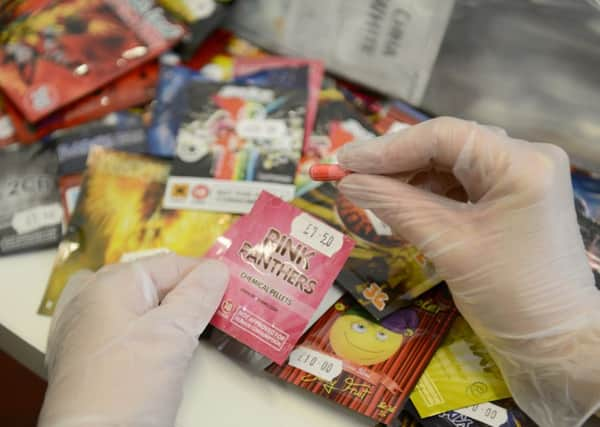Legal highs surge leaves police with massive case backlog


There are now fears the system could “grind to a halt” with staff numbers also falling in the service since 2011, figures obtained by Labour show.
About 2,500 drugs cases are on the books of Scotland’s forensic services. The surge in use of “legal highs” has resulted in a ten-fold increase in the number being dealt with by police labs.
Advertisement
Hide AdAdvertisement
Hide AdPolice chiefs say they are now looking at injecting extra funding into the service to meet the rising levels of demand, and insist there is no danger of cases collapsing. The figures were confirmed by the justice secretary, Michael Matheson, in a parliamentary response.
Labour spokesman Graeme Pearson said: “Such a huge backlog whilst staff cuts are made at Forensic Science beggars belief. If this situation continues the system will grind to a halt.”
The number of full-time police support staff working in forensic services has fallen by nearly 50 – almost 10 per cent – since 2011, while the budget has been cut by more than £350,000 to £23.8 million since 2007. Mr Pearson added: “Labour want to reform the system so that the needs of the victims are put first. An investigation dragging on can only add to a victim’s anxiety.”
Mr Matheson confirmed that the forensic services had 2,500 drugs cases in their current workload which includes “cases being worked on and those yet to be started”.
But he added: “The Crown Office has confirmed there are no systemic issues of drugs cases being delayed or lost due to problems with drugs reports.”
The Scottish Police Authority said funding for forensic services has seen a “slight increase” this year, but admitted it is now looking at allocating extra cash to deal with the situation.
“Funding the future need for forensic services is an area we are currently considering within the overall demands on the wider policing budget,” the spokeswoman added.
It recently emerged that ambulances were being called out on average six times a day to deal with cases involving legal highs.